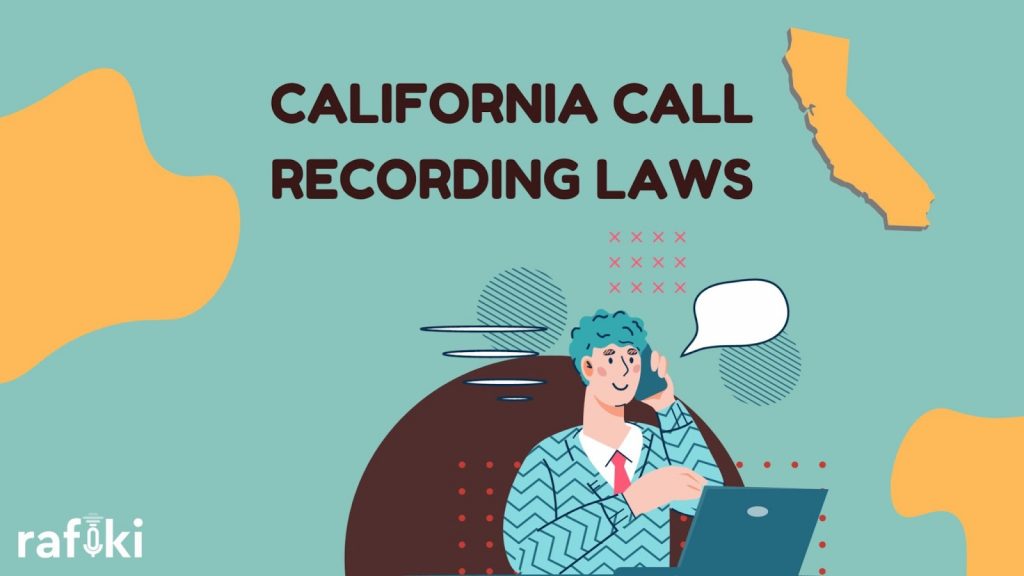Recording Phone Calls in California: Legal Considerations and Implied Consent
In California, the legality of recording phone calls without explicit consent involves complex legal frameworks that are important for individuals and businesses alike. While the state generally requires all parties to consent to recording under the California Invasion of Privacy Act (CIPA), courts acknowledge that implied consent can validate such recordings under certain conditions. This article will explore the nuances of recording phone calls in California, the concept of implied consent, and best practices to ensure compliance with legal standards.
Understanding California’s Recording Laws
California is a two-party consent state, often referred to as an "all-party consent" jurisdiction. This means that every participant in a telephone call or in-person conversation must agree to the recording. Failure to obtain explicit consent from all parties before recording may result in significant legal penalties, including criminal charges and civil lawsuits.
However, the law also distinguishes between explicit and implied consent. Explicit consent typically involves a clear and affirmative agreement, either verbal or written, before the recording begins. Conversely, implied consent may be inferred from the circumstances surrounding the communication, such as when a business routinely informs its callers that calls may be recorded, thereby establishing that the parties are aware and accept the recording practice.
Implied Consent: What It Means and How It Applies
Implied consent in the context of recording phone calls is often recognized when a party knowingly engages in a call where recording is a standard practice and does not object to it. The courts have generally accepted that if a business announces on an automated message or via an operator that "calls may be recorded for quality assurance," and the caller continues with the conversation without objection, consent may be considered implied.
This concept is particularly important because it allows businesses to utilize recordings as evidence or for quality control without needing to obtain explicit permission each time. For instance, call centers, customer support services, and telemarketing companies regularly use this approach to manage and improve customer interactions.
Legal Challenges Surrounding Implied Consent
Despite the acceptance of implied consent, legal challenges may arise when the initial notice or consent announcement is not captured on the recording. Some callers may claim they were never informed that the call was being recorded, which can jeopardize the recording’s admissibility in legal proceedings.
To address these challenges, courts often rely on additional evidence beyond the recording itself to establish implied consent. This evidence can include call logs that show the timing of the announcement, company scripts indicating routine disclosures, and testimonies from employees or the parties involved. The focus is on demonstrating that all parties had knowledge of the recording beforehand, rather than solely on the content of the recorded file.
Best Practices for Recording Phone Calls in California
To ensure that recordings are legally defensible and compliant with California’s laws, businesses should adopt clear protocols and document procedures that support implied consent. The following best practices are recommended:
- Always include a clear and conspicuous announcement at the beginning of the call stating that the conversation may be recorded.
- Retain original recording files and maintain accurate call logs and metadata that corroborate the timing and occurrence of the consent announcement.
- Keep written scripts used by call operators or automated systems to establish routine notice in case of disputes.
- Train employees regularly on the importance of informing callers about recording policies to promote transparency and legal compliance.
- If a party objects to recording, discontinue the recording immediately and consider the implications for the call’s continuity.
- Consult legal experts to review and update recording policies to stay compliant with any changes in legislation and relevant case law.
The Importance of Preserving Original Files and Documentation
The authenticity of recorded phone calls often hinges on the ability to verify the recordings’ integrity. Preserving original files in their unaltered form helps to prevent disputes over tampering or editing, which can invalidate recordings as evidence.
In addition, comprehensive documentation—such as call logs, company scripts, and testimonies—provides a robust framework to authenticate recordings. These materials assist courts and legal professionals in confirming that all parties were informed about the recording, thereby supporting claims of implied consent even when the announcement itself does not appear in the recording.
Case Examples and Legal Precedents
Several court decisions in California have underscored the validity of implied consent in recording phone calls. For example, courts have upheld recordings where the business clearly communicated the recording policy at the outset, and the caller proceeded without objection.
However, in cases where callers were not adequately informed, courts have ruled against the use of such recordings. These rulings emphasize the need for transparent communication and reliable proof that recording was consented to by all parties.
It is crucial for businesses and individuals to stay informed about evolving legal standards and judicial interpretations to mitigate risks associated with recording phone conversations in California.
Practical Advice for Businesses and Individuals
Whether operating a call center, providing customer support, or engaging in confidential communications, it is vital to approach call recording with legal diligence. Businesses should implement clear policies, document consent procedures, and educate staff about the requirements imposed by California’s recording laws.
Individuals who receive calls from businesses that use recording announcements should listen carefully to any disclaimers and understand their rights. If uncertain about the legality of a recording or if you have concerns regarding consent, consulting legal professionals is advisable.
How "Юридичний Маркетплейс КОНСУЛЬТАНТ" Can Assist
Navigating the complexities of call recording laws in California requires expert guidance. "Юридичний Маркетплейс КОНСУЛЬТАНТ" offers comprehensive legal services to help businesses and individuals ensure compliance with relevant statutes and protect their interests.
Our team provides tailored consultations on how to properly implement recording policies, verify consent, and manage disputes arising from phone call recordings. We also assist in preparing documentation and training programs that align with best legal practices.
- Developing customized call recording policies.
- Reviewing and auditing existing recording procedures for compliance.
- Representing clients in litigation related to unauthorized recordings.
- Conducting training seminars on legal recording practices.
For accurate assistance regarding phone call recording laws in California, do not hesitate to reach out to us through the communication links in our bio or send a private message for confidential consultations.
Legal Marketplace CONSULTANT — your trusted legal marketplace dedicated to providing thorough and personalized legal advice on recording phone calls and other communications within California and beyond. Our experienced team ensures your business practices align with current laws to minimize risk and maximize compliance.
Recording phone calls in California involves careful navigation of legal requirements emphasizing the necessity of consent from all parties involved. Implied consent serves as a practical solution in many business contexts, particularly when callers are properly informed that calls may be recorded. Ensuring transparency, preserving original recordings, maintaining comprehensive documentation, and adhering to best practices are essential to defend the legality of phone call recordings in court.
Businesses and individuals must stay informed and implement effective policies to comply with California’s stringent recording laws. When in doubt, consulting with experts like "Legal Marketplace CONSULTANT" creates a foundation for legal certainty and protects your rights and interests in an increasingly digital and connected world.































